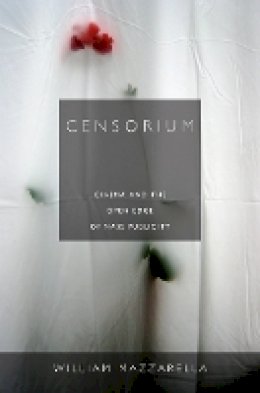
Censorium: Cinema and the Open Edge of Mass Publicity
William Mazzarella
At the intersection of anthropology, media studies, and critical theory, Censorium is a pathbreaking analysis of Indian film censorship. The book encompasses two moments of moral panic: the consolidation of the cinema in the 1910s and 1920s, and the global avalanche of images unleashed by liberalization since the early 1990s. Exploring breaks and continuities in film censorship across colonial and postcolonial moments, William Mazzarella argues that the censors' obsessive focus on the unacceptable content of certain images and the unruly behavior of particular audiences displaces a problem that they constantly confront yet cannot directly acknowledge: the volatile relation between mass affect and collective meaning. Grounded in a close analysis of cinema regulation in the world's largest democracy, Censorium ultimately brings light to the elusive foundations of political and cultural sovereignty in mass-mediated societies.
Product Details
About William Mazzarella
Reviews for Censorium: Cinema and the Open Edge of Mass Publicity
Usha V.T.
The Hindu
"This book, which lies at the intersection of anthropology and meida studies, is a path-breaking analysis of censorship in the Indian film industry."
Rohit K. Dasgupta
Asian Affairs
"The book’s stage is cinema, but it helps us understand how dominant caste groups have been so effective in mobilising support for informal bans such as on writer Perumal Murugan’s Mathorubagan, till the courts’ defence of the writer’s right to write. Mazzarella’s exploration of India’s engagement with censorship begins during British rule, and shows how restrictions on free speech got enshrined in the Constitution. The legal framework of censorship is still a work in progress. . . . To defend the indefensible, to be a little more tolerant and a little indulgent — for me those are the unstated takeaways from this important book."
Anuradha Raman
The Hindu
